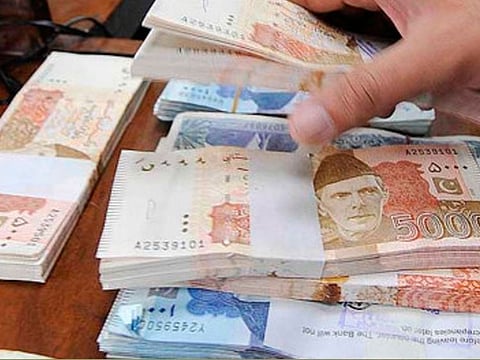Good news for remitters: Pakistan's rupee set to record biggest monthly decline in two years
Uncertainty over the International Monetary Fund's bailout plan weigh on the currency.

Pakistan's rupee is poised for its biggest monthly decline in more than two years as uncertainty over the International Monetary Fund's bailout plan weigh on the currency, which proves favourable for expats looking to remit money back home.
The Pakistan rupee has dropped to 54.5 against the UAE dirham, weakening further versus 53.9 as at Monday's close. Check the latest forex rates here. The currency had declined by over 13 per cent since March, and the pressure will likely build up further, forex analysts evaluate.
The rupee has declined about 7 per cent in May, the steepest drop since March 2020, as the country negotiates a bailout package with the IMF and other nations to keep its economy afloat and avert a default. Analysts expect the currency to remain under pressure even as the government took steps to meet the IMF's demands.
Pakistan needs about $36 billion to $37 billion in financing for the fiscal year starting June, Finance Minister Miftah Ismail said last week. Morgan Stanley estimates the funding gap to be as high as $8 billion this calendar year. A bailout by the IMF has become critical as countries that have typically been generous lenders are proceeding more cautiously now.
"Pakistan's funding requirement for the upcoming year will be met, but it'll be pretty tight, and that will keep the rupee under pressure," said Saad Khan, head of research at IGI Securities Ltd. in Karachi.IGI and Ismail Iqbal Securities Pvt. predict the rupee will decline to 220 per dollar by the end of the year. It closed at 199.06 per dollar on Monday.
"The currency could start to stabilise over the near-term with risk-on sentiment, but we still expect it to weaken over the longer-term," said Raphael Mok, head of Asia country risk at Fitch Solutions in Singapore. "Pakistan is still running a significant current-account deficit, and will remain dependent on external financing conditions."
Sign up for the Daily Briefing
Get the latest news and updates straight to your inbox



